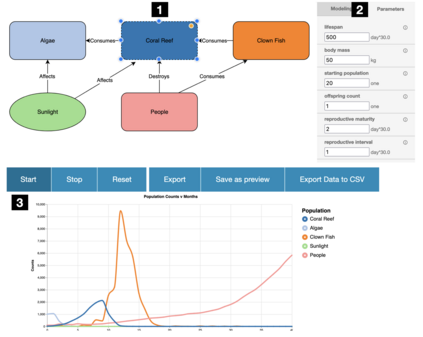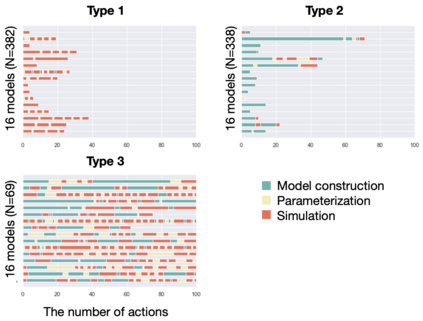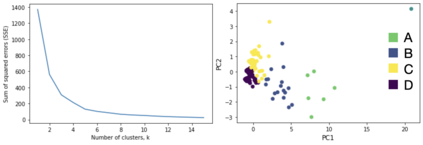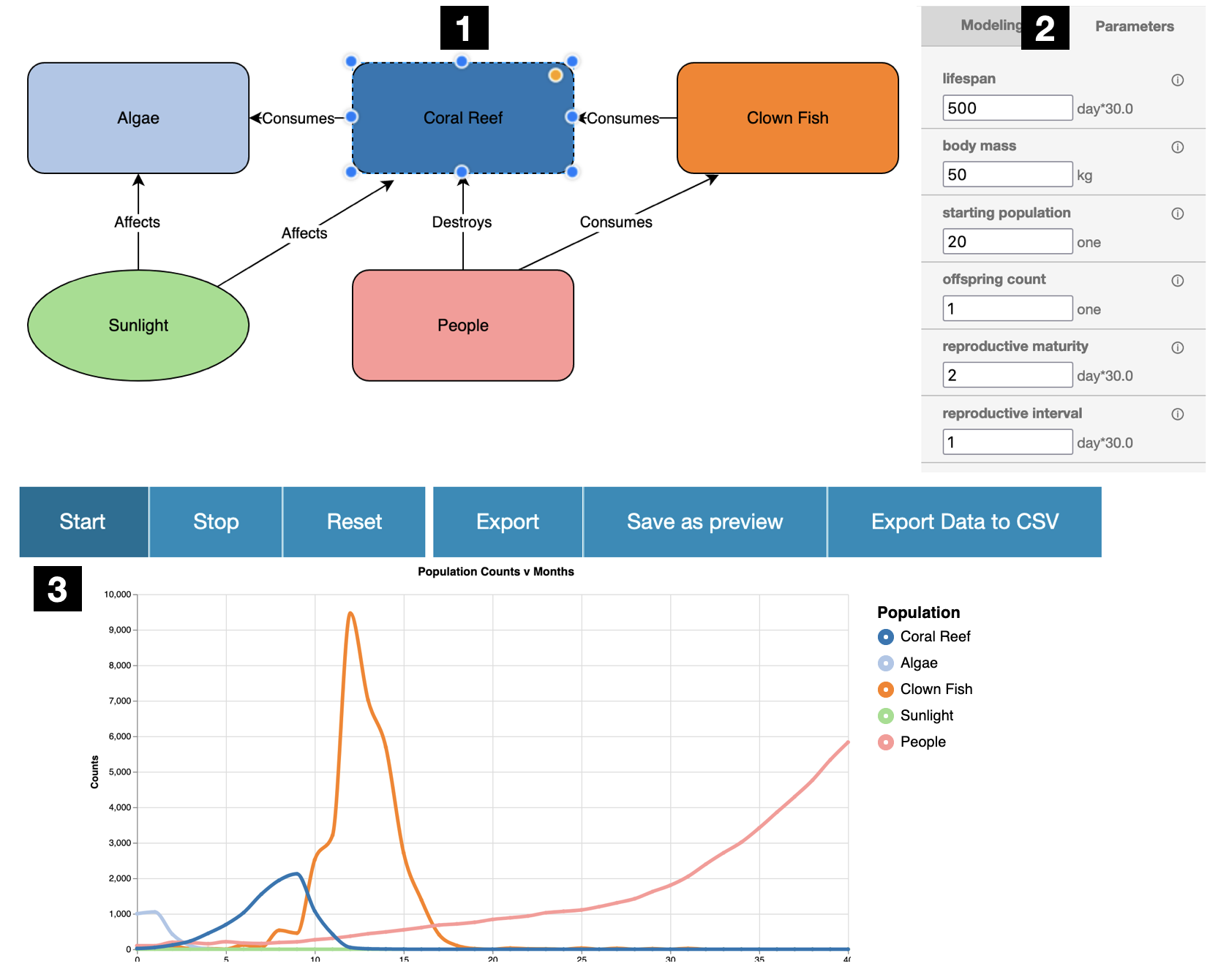We described a study on the use of an online laboratory for self-directed learning by constructing and simulating conceptual models of ecological systems. In this study, we could observe only the modeling behaviors and outcomes; the learning goals and outcomes were unknown. We used machine learning techniques to analyze the modeling behaviors of 315 learners and 822 conceptual models they generated. We derive three main conclusions from the results. First, learners manifest three types of modeling behaviors: observation (simulation focused), construction (construction focused), and full exploration (model construction, evaluation and revision). Second, while observation was the most common behavior among all learners, construction without evaluation was more common for less engaged learners and full exploration occurred mostly for more engaged learners. Third, learners who explored the full cycle of model construction, evaluation and revision generated models of higher quality. These modeling behaviors provide insights into self-directed learning at large.
翻译:我们描述了一项关于通过建造和模拟生态系统的概念模型,利用在线实验室进行自我学习的研究。在这项研究中,我们只能观察模拟行为和结果;学习目标和结果未知;我们利用机器学习技术分析315个学习者的模型行为和他们产生的822个概念模型;我们从结果中得出三个主要结论。首先,学习者展示了三种类型的模型行为:观察(模拟重点)、建筑(建筑重点)和全面探索(建模、评价和修订)。第二,观察是所有学习者中最常见的行为,但没有评价的建筑对于参与较少的学习者更为常见,全面探索大多发生在更多参与的学习者。第三,探索模型建造、评估和修订生成的高质量模型的整个周期的学习者。这些建模行为为一般的自导学习提供了深刻的见解。









